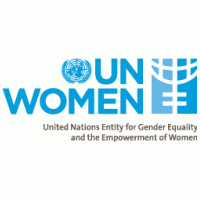UN Women is the United Nations entity dedicated to gender equality and the empowerment of women. A global champion for women and girls, UN Women was established to accelerate progress on meeting their needs worldwide.
UN Women supports UN Member States as they set global standards for achieving gender equality, and works with governments and civil society to design laws, policies, programmes and services needed to ensure that the standards are effectively implemented and truly benefit women and girls worldwide. It works globally to make the vision of the Sustainable Development Goals a reality for women and girls and stands behind women’s equal participation in all aspects of life, focusing on four strategic priorities:
- Women lead, participate in and benefit equally from governance systems
- Women have income security, decent work and economic autonomy
- All women and girls live a life free from all forms of violence
- Women and girls contribute to and have greater influence in building sustainable peace and resilience, and benefit equally from the prevention of natural disasters and conflicts and humanitarian action
UN Women also coordinates and promotes the UN system’s work in advancing gender equality, and in all deliberations and agreements linked to the 2030 Agenda. The entity works to position gender equality as fundamental to the Sustainable Development Goals, and a more inclusive world.
Members:
Resources
Displaying 11 - 15 of 15Aide Memoire: UN Women Expert Group Meeting in June 2012
Progress of the World's Women: In Pursuit of Justice
Governance, land, and the gendered politics of displacement in Pakistan
General
While policymakers and investors perceive land acquisition for infrastructure projects as a positive pathway for economic development, this is not always the experience of affected communities. As a result, land acquisitions have triggered resistance from rural and urban communities. This action research project in Pakistan will investigate three intertwined issues: how rural and urban communities in Pakistan respond to their marginalization in decision-making processes and defend against displacements; how communities organize and demand redress, including better compensation; and how communities experience loss of well-being as a result of loss of land. Its overall objective is to empower rural and urban communities who face eviction following land acquisition, especially women, to seek government support and use social and legal mechanisms to negotiate adequate resettlement and compensation. Project activities will involve training, capacity building, and information dissemination. The research portion will be an opportunity to strengthen the evidence base on land acquisition processes. This information will then be applied to develop gender-sensitive methods to empower affected communities about their rights and entitlements. The project will chart a way forward for strengthening the laws on land ownership and control in terms of language, procedures, and enforcement. It will also look at other mechanisms such as community decision-making and redress mechanisms. In partnership with community organizations, this project will work with affected communities using different tools and interventions, including the law, to increase their awareness so they can negotiate equitable terms and protect their rights and interests. The project will also develop training on psychological well-being and vulnerability involved in land acquisitions and incorporate this into all outreach efforts to the various levels of government. At the same time, the project will feed its results into civil society groups and national and international policy debates. The research will be carried out in Karachi, Pakistan’s largest urban conurbation (a region made up of a number of cities, towns, and suburban areas that has merged to form one continuous urban area), where land/property rights — formal, informal, and customary — are undergoing profound changes. The project will be led by the Institute of Business Administration, Karachi, in partnership with the NGOs Karachi Indigenous Rights Alliance and the Urban Resource Centre, which promotes accountability in land acquisitions in urban and rural areas.
Using action research to improve land rights and governance in Africa – Cohort inception support
General
This project will support the launch of a new cohort of projects in Africa entitled “Using Action Research to Improve Land Rights and Governance for Communities, Women and Vulnerable Groups”. This new research builds on findings from a first phase of IDRC-supported research, “Building Accountability around Large Scale Land Acquisitions in sub-Saharan Africa”. This body of work addresses the growing pressures on rural lands and communities’ land rights and access to land resulting from increased investments in agricultural lands in developing countries in recent years. For this round of projects, IDRC launched a targeted call for proposals in May 2017. Four proposals were selected for support that together will cover Cameroon, Mali, Nigeria, Senegal, and Sierra Leone. In complementary ways, the new three-year research projects aim to identify what works and what can be scaled up to improve land rights and governance for communities, women, and vulnerable groups in sub-Saharan Africa. An additional cluster of projects is anticipated for support in early 2018, drawing from the pool of proposals submitted through the call. This cohort inception support project aims to expand the reach and impact of those projects. It will support a joint inception workshop that will bring together the four research teams’ leads, candidates for the second cluster of projects, and additional experts. Teams will discuss common questions of research and methodology, and will plan joint activities across projects, such as a shared communication strategy. This approach builds on lessons learned on supporting cohorts, particularly the need to plan cross-project activities from the outset. Additional funds are also included for publication of a background report prepared earlier in 2017, “Commercial investments, pressures on land and legal empowerment in low and middle-income countries”, that informed the design of this body of research. Communications support will also be included for this body of work.



